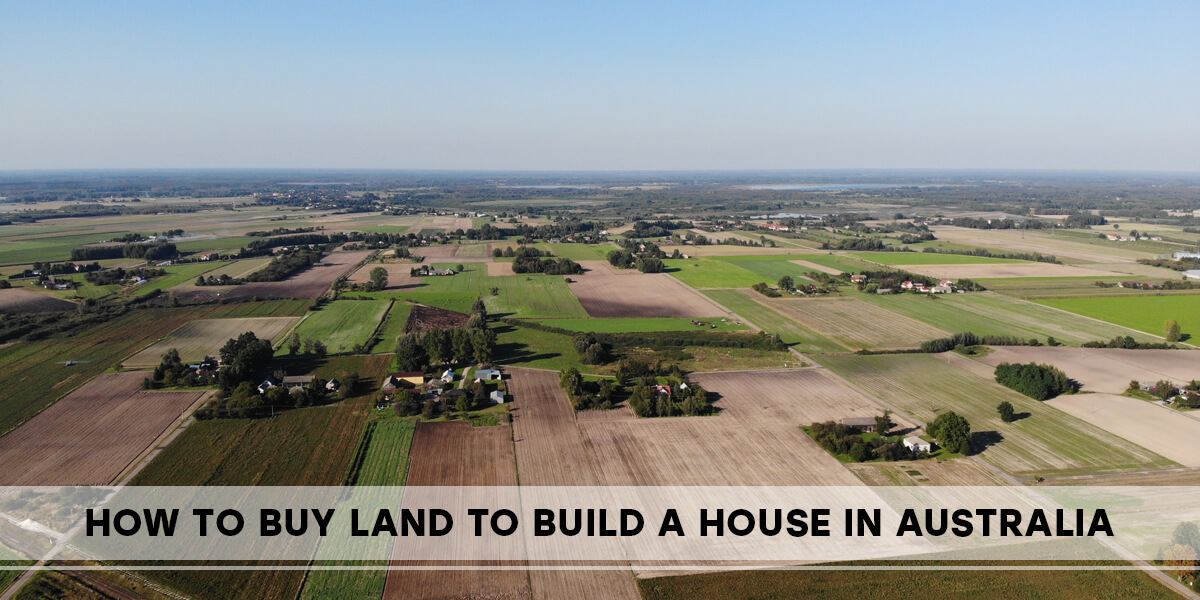How To Buy Land To Build A House in Australia
How To Buy Land To Build A House in Australia

Land lying proximate to capital cities is understandably expensive but you should also know that there are plenty of new areas ideally suited for aspiring new homeowners to build their dream houses and real estate agents in Melbourne can be a huge help in this direction. Therefore for intending buyers keen on buying land around Melbourne and building their new home, we have collated the following guide to moving ahead on their aspiration.
Draw up a list of key features that you must have in the vicinity
We have all developed our own lifestyles and there can be no compromise even when you are buying land and building a new home in it. Following are the key features that most people look for when moving to a new suburb or building a home in another suburb.
- Proximity to public transport
- Proximity to schools
- Amenities and shops within a reasonable distance
- Recreational areas and parks in the vicinity
- Distance from workplace, family and friends
Once you have the answers to the above questions, it gets a lot easier to determine which suburb you should focus on.
Your Budget
Buying land and building a home on that land is quite different from buying a ready to move in house. Therefore, it is important that you have a clear idea of your budget before embarking on finding your ideal real estate in Melbourne. You need to factor in state taxes, conveyancing, duties, fees, and other incidentals. You should also take into account the cost of getting a home design and the cost of building your home. Real estate agents in Melbourne or mortgage brokers can be of significant help in understanding these costs and accounting for them. In this process, you should also check your eligibility for the first homeowner grant available to you from the federal government.
Choose a Block with all Desirable Features
Do remember that the cheapest block may not be the most ideal block for you. Consider proximity to various facilities, any trees or rocks that may need to be removed (adding to your budget). If you are considering buying land in newer master-planned communities, all the required information can be accessed in a single location and experienced Real estate agents in Melbourne can throw light on these minor complexities.
Building your House
Once you have taken possession of the land, the next step is to commence the process of building your house. This process involves multiple components and each of them is crucial to get the desired results. When you buy real estate in Melbourne in new developments, designers and builders who are already vetted can provide you with a wide range of home designs for you to choose from. Conversely, if you are focused on customizing various elements of your home, you will need to work with a consultant for various elements like home design, interior fixtures, colour options, fittings, and finishing touches to get your home the way you have always dreamt. You should also consider some of the following points while choosing a home design:-
- Modern vs. traditional style home
- Get a floor plan and understand the measurement of each room and other spaces. You can visualize these spaces or get help with a 3D design of the floor plan. A 3D design helps you understand the final shape of things better and quickly make changes if deemed necessary.
- Consider if all your furniture can be comfortably accommodated in the designated spaces
- Is the design consistent with your lifestyle?
- Does the home design allow for changes?
- What are the options in terms of materials?
Deposit and Paperwork
By now, you should also have received the final building contract with all its annexures and details. Each paper in the contract and each line on those pages are very important. If you do not comprehend the legal implications of the contract language, an established real estate agent in Melbourne or a legal practitioner with adequate knowledge of real estate and building contracts can help you. For many people, the language employed in a contract document may not be comprehensible, but that cannot be an excuse if a conflict arises. In fact, working with an experienced legal professional would work to your advantage in the long run.
Once you have signed the contract after thorough vetting, you should pay the designated deposit and submit the contract documents to your mortgage lender. You should also ensure to keep a copy for your own reference safely. Better still, you can sign an e-contract so that it can be digitally stored and retrieved whenever needed. Use a cloud storage facility so that the document remains absolutely safe for all time to come.
Commencing Construction
After completing the documentation at this stage and obtaining the mortgage loan, your contractor will initiate a soil test at the parcel of land you have purchased to ascertain overall stability of the ground, identifying the underlying water table and other properties that impact the structural integrity of your home once it is built. Your contractor also provides a schedule of work and a projected date for the delivery of your dream home. At various stages of the construction activity, you will also inspect the progress and coordinate with the contractor for any potential changes till the final inspection and possession.









